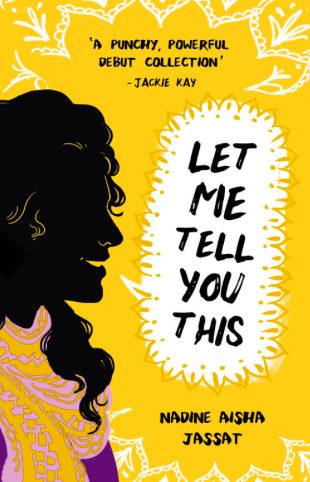In her debut collection, poet and creative practitioner, Nadine Aisha Jassat, explores racism, gender and identity and how these things combine to make us who we are. The collection is split into three sections: Hands, Words and Voice, in an enticing use of synecdoche relating once again to the different parts which make us unique; these three features being particularly distinctive to us all.
Jassat’s opening poems explore the cultural influences she grew up with giving a feeling of curiosity about where we truly belong. There are distinct parallels here with the Carol Ann Duffy poem, Originally, and this is further developed in, Hopscotch, where Jassat writes: “and where, / where, / where are you from, / originally.” Duffy’s poem asking: “Now, Where do you come from? / strangers ask. Originally?”
Creativity is drawn from inspirations such as this and in her anthology Jassat also takes influence from such places as science, art and stories passed down from family members making this a deeply personal work. She is also not afraid to discuss subject matter which others may be afraid to tackle for fear of political incorrectness, giving an underlying truth to everything she writes.
There is swearing but due to its very deliberate placement and the subject matter being covered it comes across not as vulgar but instead as emphasising the cruelness of a world Jassat argues those with white privilege just cannot understand.
There is a constant reminder of the dual heritage she has: “I make a mess when rolling rotis” perhaps a metaphor for what is happening to her Pakistani heritage, and in a convergence of the ideas of race and gender: “I exist, somewhere between / ‘are you Asian?’ / and / ‘Nice tits!’”
For anyone who has every felt remotely out of place in a world where we are all expected to conform this is a collection where you will find messages to hold onto, be it the connections with family members: “I wish I could press my ear to you like a shell, / to hear the ocean of you, / to know the roar that is yours”, or simple but powerful messages such as “Don’t tell half the tale” when telling your own story and from the titular poem, Let Me Tell You, something everyone feels at times: “This road has been hard”.


Comments